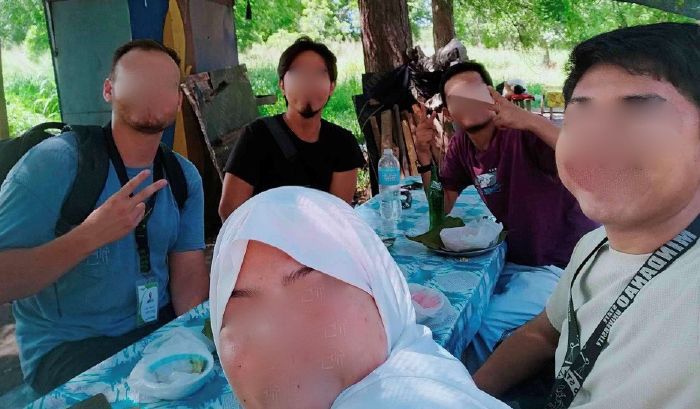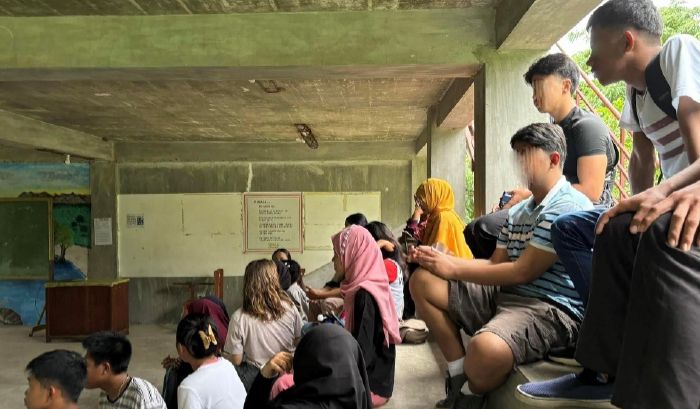
Taiwanese Christians Answer God’s Call to the Unreached
Contributed by Jessica Smith of SEND Taiwan
Taiwan has had a long history of missions, from Dutch and Spanish missionaries in the 17th century, to the many international and local agencies that currently work in Taiwan. SEND has been in Taiwan for over 70 years and our goal has always been to share the gospel, plant healthy churches, and disciple believers who will then repeat the process.
In recent years,
GCM (Global Chinese Ministries)
Taiwan has grown from being a receiving field to now also being a sending field. This is an exciting new work that is still in its beginning stages, but God has already blessed the work by providing connections with churches, organizations, and individuals who want to do cross-cultural work.
GCM Sending is a global movement of Jesus followers engaging Chinese communities and empowering them to make disciples among the unreached.
Since 2020, one short-termer, one couple, and two families with kids have been sent through or joined SEND through the GCM Sending office. These missionaries are working with unreached people groups in the Philippines, Chad, and Thailand. It’s exciting to see how God is calling Taiwanese Christians to cross-cultural work and it’s a privilege for SEND to be a part of that process. Below is an excerpt from a recent newsletter of one of the families working among Muslims (translated to English and edited for security reasons).
Being the Hands and Feet of Jesus to Muslims
“At the end of June, we flew south to move into the MIGA (pseudonym) community, where our team has a local non-profit organization and serves the students at a university. At one event, I was having dinner with a group of boys, and I asked the boy on my left what ethnic group he was from (there are more than 90 ethnic groups here, 13 of which are Muslim alone). When he answered MIGA I paused mid-bite, a subtle smile formed at the corners of my mouth, and I thought to myself, "Finally! Our family is finally here, among you." As I continued to eat, I wiped away the tears from the corners of my eyes before anyone noticed.

My wife and I are responsible for being one-on-one coaches every month for Muslim students sponsored by the organization, listening to them, helping them with their academic difficulties, and guiding them to find a way out of the difficulties they face in life. These young people have never had anyone to sit beside them and give them one-on-one time, so we hope to make them feel cared for and supported through this kind of companionship.
One of them is a senior who I coach one-on-one. He’s the president of the Muslim Association of the university and the dean of the boys' dormitory. Every student’s impression of him is that he is active and busy in various activities. During our first meeting, I asked him about his family background. He told me that his parents had divorced when he was young, he had been raised by an aunt and uncle on his mother's side, and he had no memory of his birth mother.

One of them is a senior who I coach one-on-one. He’s the president of the Muslim Association of the university and the dean of the boys' dormitory. Every student’s impression of him is that he is active and busy in various activities. During our first meeting, I asked him about his family background. He told me that his parents had divorced when he was young, he had been raised by an aunt and uncle on his mother's side, and he had no memory of his birth mother. It was not until he was seven years old that his biological father realized he existed and brought his stepmother to pick him up and bring him from the northern part of the country to the southern part. Since his stepmother was a Muslim, so his father had to become a Muslim in order to marry her. Naturally, he also became a Muslim and grew up in the Muslim community in the south, learning the dialect and the Islamic faith, although he did not understand it at all.
However, not long after, his father left to work in a distant country, leaving him to live with his stepmother and her two stepchildren, who, as you can imagine, favored the two biological children and often left him out. A few years later, his stepmother left him in the care of her sister, who was not his blood-relative and took the two children with her to work elsewhere. By this time, when he was already in middle school, he had very little to live on. The transportation to and from school alone cost him almost all of his daily allowance, leaving him with barely enough to buy lunch.
He didn't complain. After working hard to get into college, he told me that he always kept his schedule full because he finally felt in control of his life. Now he is a senior, writing his thesis on national law. He spoke to me about his uprooted childhood and the subject of conflict with sharia law.
It is hard to tell that this young man, with his smiling and gentle exterior, has had such a difficult background. I honestly didn't have any clue or confidence to bring him to Jesus since he only had one year of school left, but I chose to encourage him and recognize what he has gone through, from having such a difficult upbringing to becoming the beloved Muslim student leader that he is today. I told him that I would be there for the rest of the day, and if he had any questions, he knew where to find me and I thanked him for giving me the opportunity to be there for him.”

God’s Work Continues
This Taiwanese family heard and obeyed God’s calling in their life and now has the opportunity to be a beacon of light in a dark place. While Taiwan has religious freedom and there are many churches, a widespread missions movement has yet to take root. Local churches and church leaders are still mostly inward-focused or lack training in cross-cultural missions.
There is also a lack of organizations that can process and send Taiwanese missionaries, especially when it comes to receiving and distributing funds. That’s why the work of our sending office is so important. We are able to support, prepare, and send these believers. Continue praying for the missionaries who have already been sent out, and for more Taiwanese to answer God’s call to cross-cultural work!
Additional Posts




